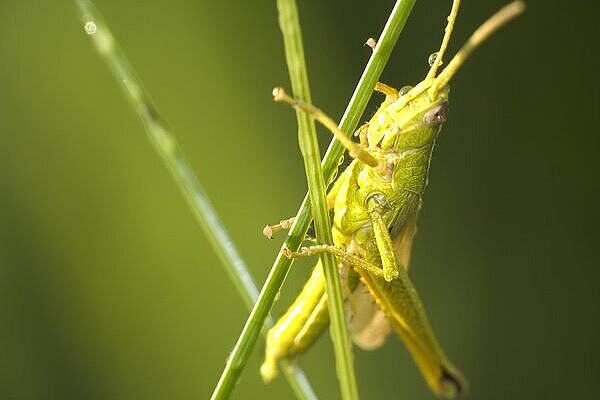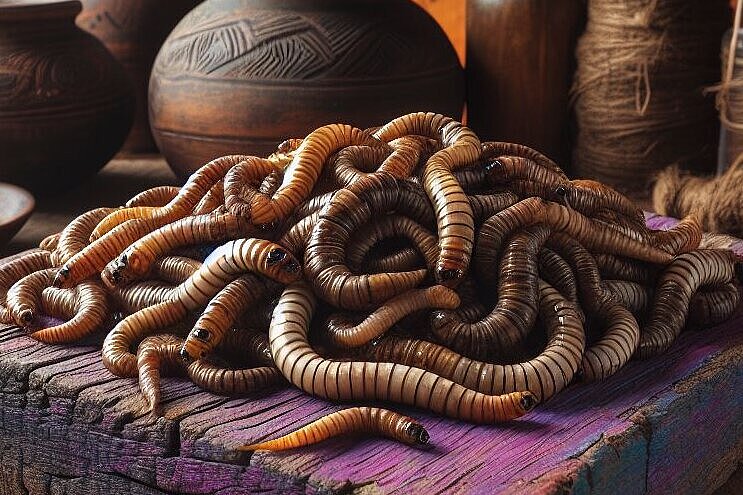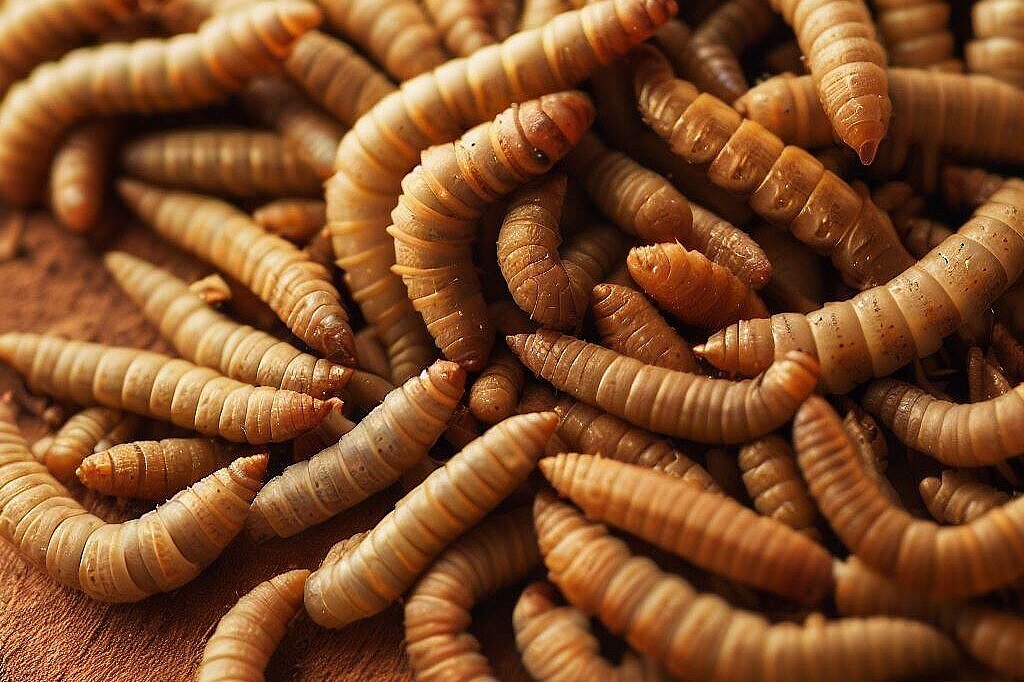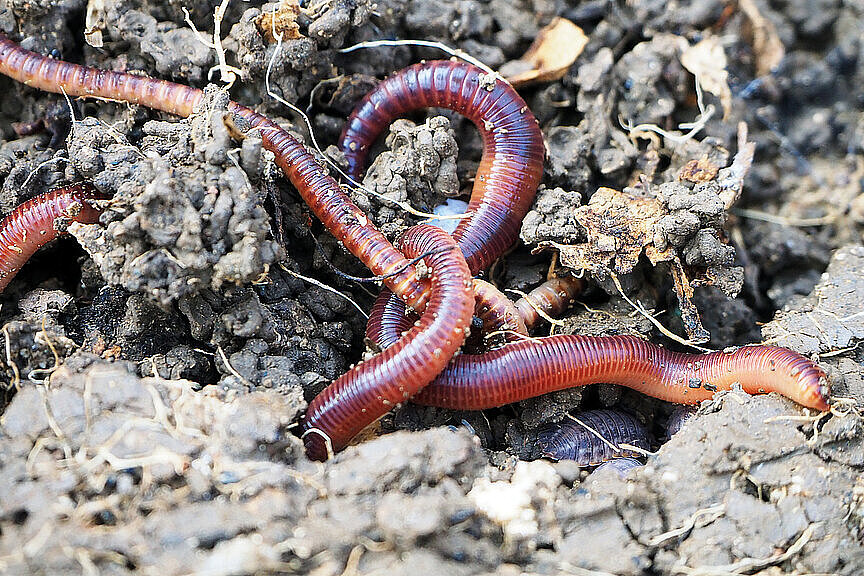Maggots
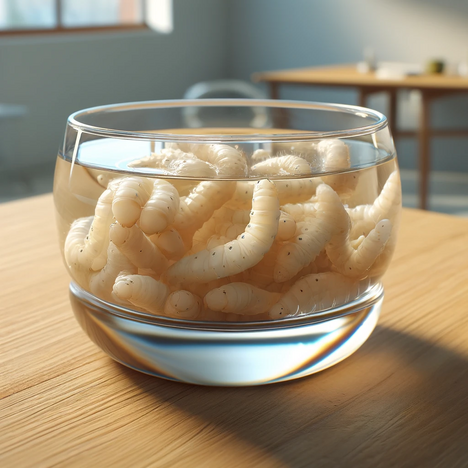
In the constant search for sustainable and nutritious food alternatives for our four-legged companions, the discussion about the use of maggots as a source of protein in dog food has arisen. This idea may seem strange at first glance, but the use of insects in animal nutrition is gaining popularity worldwide. In this article, we explore what maggots are, their potential benefits as well as the drawbacks of their use in dog nutrition and draw a final conclusion on their suitability as a feed ingredient.
What are maggots?
Maggots are the larval stages of certain insect species, particularly flies. They are known for their ability to rapidly decompose organic material and play an important role in the ecosystem in composting and the natural disposal of waste. In animal nutrition, maggots are specially bred and processed to provide a controlled, clean and nutritious source of protein.
Potential benefits of maggots for dogs
High quality protein source
Maggots provide a high quality protein profile that contains all the essential amino acids necessary for canine health and growth. Protein is essential for muscle development, tissue repair and overall immune system function.
Sustainability
Raising maggots has a much smaller ecological footprint than traditional livestock farming. They require less land, water and produce less greenhouse gases, making them an environmentally friendly alternative.
Fat content and omega-3 fatty acids
In addition to protein, maggots also contain a healthy amount of fats, including omega-3 fatty acids, which have anti-inflammatory properties and can contribute to healthy skin and coat.
Disadvantages and risks of maggots for dogs
Processing and origin
The safety of maggots as animal feed depends heavily on their processing and origin. Uncontrolled or improperly bred maggots can carry pathogens and thus endanger the dog's health.
Acceptance
Acceptance of maggots as a food source can be low in some dogs (and their owners). Switching to a diet containing maggots may require patience and familiarization.
Nutritional balance
While maggots are a high-quality source of protein, they must be incorporated into a balanced diet plan that meets all of a dog's nutritional needs. Feeding maggots exclusively without considering other necessary vitamins and minerals can lead to deficiencies.
A promising option with caveats
Maggots as a source of protein in dog nutrition offer interesting potential for sustainable, nutrient-rich diets. Their advantages, such as a high protein content, sustainability and contribution to a healthy fat intake, make them an alternative worth considering. However, the challenges, particularly in terms of safety and acceptance, should not be underestimated.
For dog owners considering including maggots in their four-legged friend's diet, it is essential to choose products from trustworthy manufacturers that guarantee safe and controlled breeding. A frank discussion with a pet nutritionist or vet can help to create a balanced diet plan that takes advantage of the benefits of maggots without compromising the dog's health. Ultimately, incorporating maggots into a dog's diet could be a step towards a more environmentally conscious and health-promoting future, but requires careful consideration and planning.
If you notice any signs of hypersensitivity or poisoning in your dog, you should see your vet immediately. We are not a substitute for a vet, but we try to be as accurate as possible. Every dog reacts differently and we recommend you get a second opinion or consult your vet if in doubt.
Stay healthy and take good care of your four-legged friend!😊
Similar to Maggots
Crickets are insects of the grasshopper order. They have six legs, two antennae and a long abdomen. They feed mainly on plants and live in various habitats around the world. Crickets have been used...
Buffalo worms are the larvae of the buffalo beetle (Alphitobius diaperinus) and are prized for their high protein quality and sustainable breeding process. They are part of entomophagy, the...
Mealworms are the larvae of mealworms. They are mainly used as food for reptiles, birds and fish, but are also increasingly used as an ingredient in dog food and snacks. Mealworms can be fed both...
There are various reasons why dogs eat earthworms. On the one hand, they may be curious and see the worms as a toy or snack. On the other hand, they may have a deficiency of certain nutrients, such...
